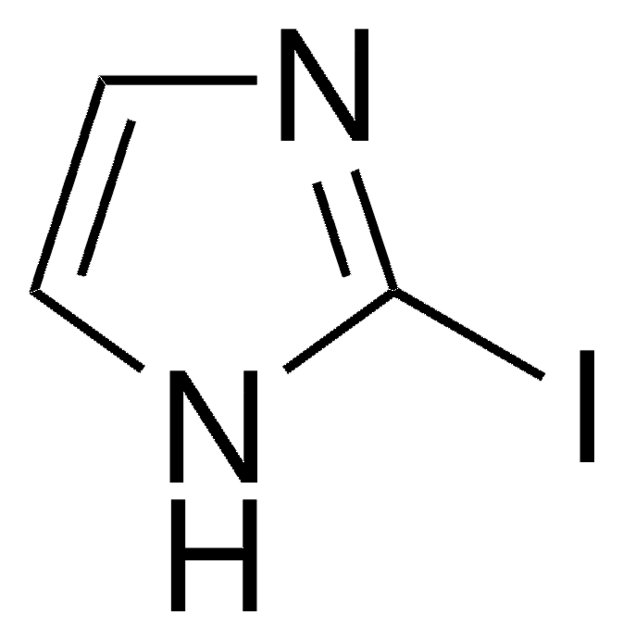857343
Basic Fuchsin
certified by the Biological Stain Commission, Dye content ≥88 %
Synonyme(s) :
Basic Parafuchsin, Basic Red 9, Magenta™ O, Parafuchsin hydrochloride, Paramagenta hydrochloride, Pararosaniline chloride, Pararosaniline hydrochloride
About This Item
Produits recommandés
Qualité
certified by the Biological Stain Commission
Niveau de qualité
Forme
powder
Composition
Dye content, ≥88%
Couleur
green to dark green
pH
1.0-3.1, purple to red
Pf
268-270 °C (dec.) (lit.)
λmax
544 nm
ε (coefficient d'extinction)
≥11000 at 235-239 nm in 50% ethanol at 0.003 g/L
≥17000 at 287-291 nm in 50% ethanol at 0.003 g/L
Application(s)
diagnostic assay manufacturing
hematology
histology
Température de stockage
room temp
Chaîne SMILES
[Cl-].Nc1ccc(cc1)C(\c2ccc(N)cc2)=C3/C=CC(=[NH2+])C=C3
InChI
1S/C19H17N3.ClH/c20-16-7-1-13(2-8-16)19(14-3-9-17(21)10-4-14)15-5-11-18(22)12-6-15;/h1-12,20H,21-22H2;1H
Clé InChI
JUQPZRLQQYSMEQ-UHFFFAOYSA-N
Vous recherchez des produits similaires ? Visite Guide de comparaison des produits
Application
Actions biochimiques/physiologiques
Adéquation
Informations légales
Mention d'avertissement
Danger
Mentions de danger
Conseils de prudence
Classification des risques
Carc. 1B
Code de la classe de stockage
6.1C - Combustible acute toxic Cat.3 / toxic compounds or compounds which causing chronic effects
Classe de danger pour l'eau (WGK)
WGK 3
Point d'éclair (°F)
Not applicable
Point d'éclair (°C)
Not applicable
Équipement de protection individuelle
Eyeshields, Gloves, type P3 (EN 143) respirator cartridges
Choose from one of the most recent versions:
Déjà en possession de ce produit ?
Retrouvez la documentation relative aux produits que vous avez récemment achetés dans la Bibliothèque de documents.
Notre équipe de scientifiques dispose d'une expérience dans tous les secteurs de la recherche, notamment en sciences de la vie, science des matériaux, synthèse chimique, chromatographie, analyse et dans de nombreux autres domaines..
Contacter notre Service technique







